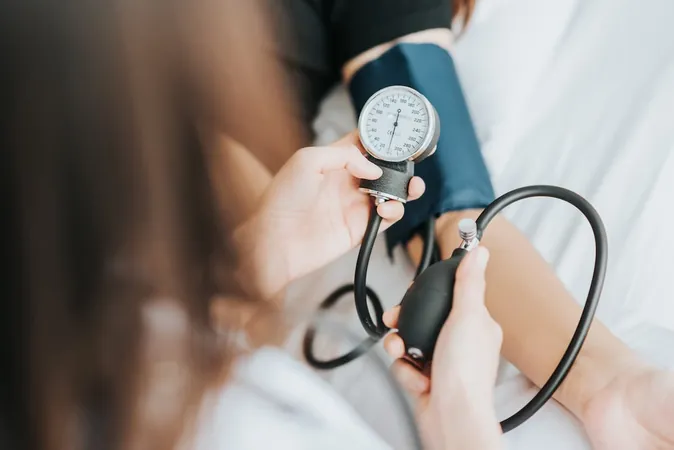
Warning: Private Menopause Tests Could Undermine Women's Health Care, Say Experts
2025-09-07
Author: Ming
The Dangerous Rise of Private Menopause Testing
In a shocking revelation, senior doctors have raised alarms over pricey, over-the-counter hormone tests for menopause, labeling them as clinically ineffective and potentially harmful to women's healthcare.
Misleading Tests Flooding the Market
These self-testing hormone kits, marketed by private clinics, promise personalized insights by measuring hormone levels. However, medical experts cry foul, describing the kits as misleading and unnecessary. Dr. Stephanie Sterry, co-author of a recent BMJ editorial titled "Menopause Misinformation is Harming Care," stated, "These tests aren’t supported by evidence and merely encourage women to waste hundreds of pounds on ineffective solutions."
What Are These Tests?
The UK market offers two types of menopause hormone tests: rapid urine tests, boasting results in just two minutes, and finger-prick blood tests sent for lab analysis, promising results within one to two days. While urine tests are found in popular retailers for around £8, blood tests can range from £32 to a hefty £189.
Expert Consensus: Symptoms Matter More Than Tests
Medical guidelines from NICE, the American College of Obstetricians and Gynecologists, and the British Menopause Society agree: women over 45 should be diagnosed based on symptoms alone. Daily hormone fluctuations render test results unreliable for diagnosis.
Creating Unrealistic Expectations
Dr. Paula Briggs, Chair of the British Menopause Society, echoed the concerns, noting, "The popularity of these tests has set unrealistic expectations regarding hormone replacement therapy (HRT), particularly regarding mental health. This trend paves the way for unregulated, expensive treatments like bioidentical hormones."
Need for Evidence-Based Care
Dr. Susanna Unsworth emphasized that these hormone tests are "absolutely" damaging care and causing confusion among patients. She frequently encounters women arriving with test results from private companies, which complicate care. "Most of these results lack meaningful interpretation, which undermines trust in the doctor-patient relationship," she explained.
Private Clinics Defend Their Practices
Dr. Martin Thornton from Bluecrest defended the tests, arguing they empower women by correlating symptoms with data. "Testing initiates meaningful dialogue with doctors, helping clarify if symptoms are related to menopause or something else," he said.
A Misguided Approach
Yet, Dr. Sterry countered this argument, asserting, "There's no evidence linking menopausal symptoms to hormone test results. Discrepancies between symptoms and tests can lead to misdiagnoses and inadequate treatment."






 Brasil (PT)
Brasil (PT)
 Canada (EN)
Canada (EN)
 Chile (ES)
Chile (ES)
 Česko (CS)
Česko (CS)
 대한민국 (KO)
대한민국 (KO)
 España (ES)
España (ES)
 France (FR)
France (FR)
 Hong Kong (EN)
Hong Kong (EN)
 Italia (IT)
Italia (IT)
 日本 (JA)
日本 (JA)
 Magyarország (HU)
Magyarország (HU)
 Norge (NO)
Norge (NO)
 Polska (PL)
Polska (PL)
 Schweiz (DE)
Schweiz (DE)
 Singapore (EN)
Singapore (EN)
 Sverige (SV)
Sverige (SV)
 Suomi (FI)
Suomi (FI)
 Türkiye (TR)
Türkiye (TR)
 الإمارات العربية المتحدة (AR)
الإمارات العربية المتحدة (AR)